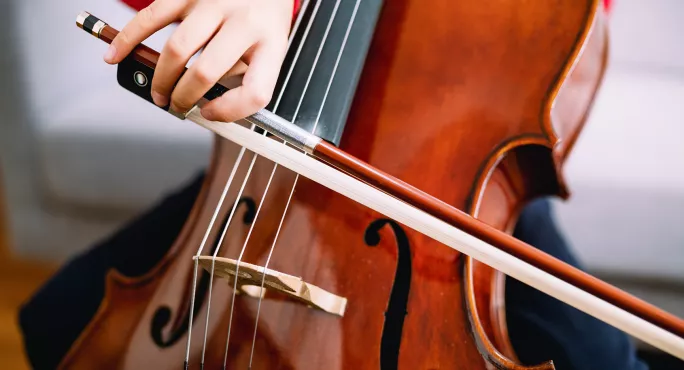Stem focus should expand to Steam, MPs’ arts group says

A group of MPs has said that arts education in the UK is in a “state of crisis” and has called for an overhaul of the English Baccalaureate to give subjects such as music and drama more prominence in the national curriculum.
During a debate in Westminster Hall yesterday, members of the All-Party Parliamentary Group on Performing Arts Education and Training called on ministers to turn from “Stem to Steam”.
“The idea of Steam [science, technology, engineering, arts and maths] adds the creativity of the arts, and unlocks some of the creativity in science and tech - that is where we get breakthroughs,” said Jayne Kirkham, Labour MP for Truro and Falmouth.
Opposition to EBacc structure
Chair Jess Brown-Fuller, the MP for Chichester, backed the idea of Steam as she opened the debate.
“The current structure of the EBacc is opposed by teachers, education experts, trade unions, artists and the creative sector,” she said.
“Perhaps more importantly, a survey by the Cultural Learning Alliance concluded that one of the advantages of arts-based studies is stronger educational attainment generally, and there are well-acknowledged connections between participation in the performing arts and stronger self-motivation, as well as improved physical and mental wellbeing and the development of inner resilience.”
Since the introduction of the EBacc in 2010, Ms Brown-Fuller said, arts subjects have seen a “drastic decline” in the number of students taking them at GCSE: a decrease of 29 per cent in drama, 24 per cent in music and 65 per cent in the six design and technology subjects. In contrast, geography saw an increase of 42 per cent and history of 33 per cent, while the single sciences were up by 38 per cent.
- Related: Experts warn of arts apocalypse’ in schools
- GCSEs: How to entice more students to sit arts exams
- Curriculum review: Schools sector has its say
Creative industries add billions to economy
Ms Brown-Fuller said she wanted greater access to jobs in the arts and cultural sector for children of all backgrounds. She said that the sector contributes well over £8 billion to the UK economy each year - putting £2.5 billion directly into the Treasury through taxation - and the creative industries as a whole generated £125 billion in 2022.
“They account for almost 6 per cent of the UK economy, create 2.5 million jobs and have a huge impact on the tourism economy, with one in 10 tourists to the UK visiting a theatre,” she said.
Polly Billington, Labour MP for East Thanet, said that creative industries were full of people who had a private school education. She called on the Department for Education to “scrap the EBacc and Progress 8, as part of the curriculum review, so that we once again encourage all children to take up the arts”.
Children and families minister Janet Daby agreed that creative subjects are “significant elements of the rounded and enriching education that the government want every child to receive”.
She stressed that creative subjects are part of the national curriculum for all maintained schools from the ages of 5 to 14, and that academies were expected to teach these subjects as part of their statutory requirement to foster pupils’ cultural development.
No child ‘deprived’ of creative education
“The government’s goal is to ensure that no child is deprived of the enriching experience that creative education provides,” she said.
Ms Daby said the curriculum review “will seek to deliver a broader curriculum, with improved access to music, art, sports, drama and vocational subjects”.
It will also look at “the barriers that hold children back from the opportunities that they should be able to access”.
The curriculum review recommendations put forward by Professor Becky Francis and her expert-led panel will be published in 2025.
For the latest education news and analysis delivered every weekday morning, sign up for the Tes Daily newsletter
Keep reading for just £1 per month
You've reached your limit of free articles this month. Subscribe for £1 per month for three months and get:
- Unlimited access to all Tes magazine content
- Exclusive subscriber-only stories
- Award-winning email newsletters
topics in this article



